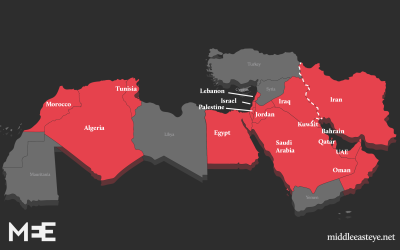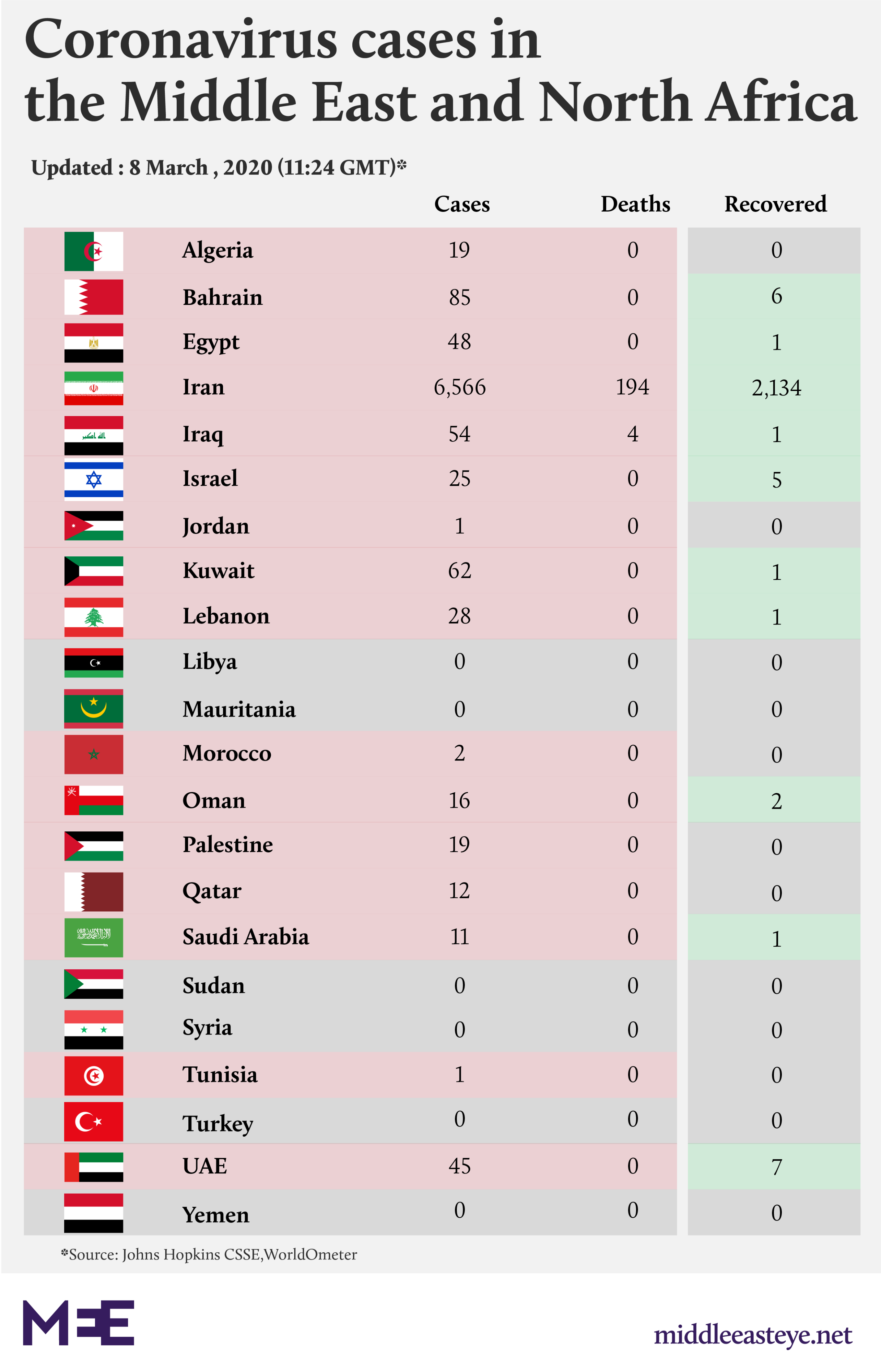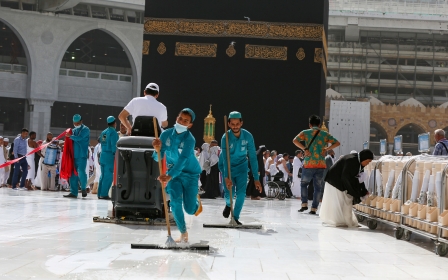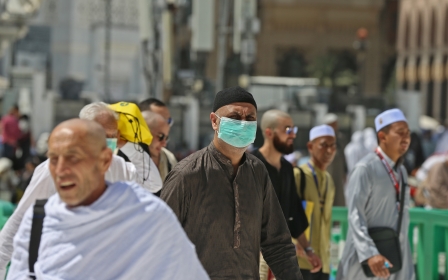Coronavirus: Touching Kaaba forbidden as Mecca's Grand Mosque partially reopens
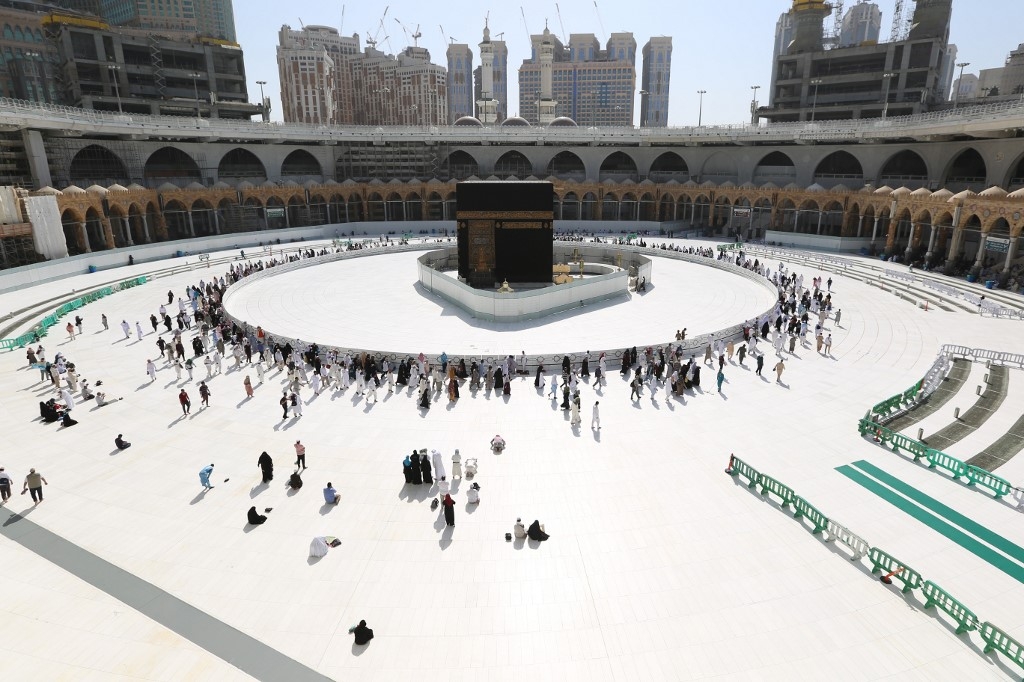
Saudi Arabia partially reopened Mecca's Grand Mosque, Islam's holiest site, on Saturday but left the ban on pilgrimages in place as part of the kingdom's measures to combat the coronavirus.
Based on a royal decree by King Salman, the holy site reopened on Saturday morning for those seeking to perform the tawaf ritual, which involves walking around the sacred Kaaba, a black boxed structure in the mosque complex. However, visitors will not be permitted to touch the Kaaba.
The decision "allows the opening of the area around Kaaba for non-Umrah visitors performing tawaf, effective at dawn on Saturday, in accordance with the drawn plan," a statement by the mosque director read.
Saudi Arabia had introduced a series of measures since Thursday to protect the two holy mosques of Mecca and Medina from the coronavirus, also known as Covid-19.
As part of the measures, authorities closed off the interior of the Grand Mosque to allow cleaning teams to disinfect the tawaf area near the Kaaba.
According to Saudi officials, the rules included the closure of both mosques between the evening Isha prayers and morning Fajr prayers, and a ban on food entering the two complexes.
Mount Safa and Mount Marwa inside the Great Mosque in Mecca would also be closed until a ban on Umrah pilgrimages is lifted.
The earlier decision also included closing off Zamzam water dispensaries within both mosques.
Riyadh on Wednesday introduced a ban on Saudi citizens, residents and foreigners hoping to visit Mecca and Medina for the Umrah pilgrimage, leaving thousands of Muslims with Umrah plans worldwide in limbo.
Umrah is a pilgrimage to Mecca that can be undertaken at any time of the year and is not considered compulsory. Pilgrims often visit the Prophet Muhammad's mosque, also known as Masjid al-Nabawi, before or after visiting the Grand Mosque in Mecca.
Following the decision to reopen the holy site, hundreds of Muslims were seen rotating around the Kaaba, but the area between two hills that pilgrims must go between seven times to complete Umrah remained closed.
Barricades blocked access to the Kaaba, draped in a gold-embroidered black cloth, while men in green uniforms cleaned the white-tiled floor.
It remains unclear how long the ban on Umrah pilgrimages will be implemented, but travel agencies told MEE that Saudi Arabia introduced the restrictions to prepare for the coronavirus.
New coronavirus cases
Saudi Arabia's health ministry said on Saturday that four new cases of the virus had been detected, bringing the total infections in the kingdom to 11.
Riyadh restricted land crossings with neighbouring countries on Saturday to commercial trucks only, adding that passenger arrivals will be limited to three airports in the country.
According to the Saudi Press Agency, entry for those coming from the United Arab Emirates, Kuwait, and Bahrain will be restricted to King Khaled International Airport in Riyadh, King Abdulaziz International Airport in Jeddah and King Fahd International Airport in Dammam.
"Entry between the kingdom and these countries through land crossings will only be for commercial trucks," an official told the agency.
Meanwhile, the health ministry has asked people who have travelled to Lebanon, Egypt, Italy or South Korea to self-quarantine for two weeks from the day of their arrival in the kingdom.
Qatif province in lockdown
Saudi authorities announced on Sunday that they have imposed a temporary lockdown on the eastern Qatif province, home to the kingdom's largest Shia population, to prevent the spread of the virus.
All the individuals who had been diagnosed with the disease in the kingdom have either been to Iran or interacted with people who visited the Islamic Republic, home to major Shia holy sites.
The Saudi interior ministry said in a statement that no one would be allowed to enter or exit Qatif and that work at all public and private sectors in the province had been suspended with the exception of institutions providing necessary services.
Commercial supplies would continue to flow to the region, said the statement carried on state media.
Middle East Eye delivers independent and unrivalled coverage and analysis of the Middle East, North Africa and beyond. To learn more about republishing this content and the associated fees, please fill out this form. More about MEE can be found here.


